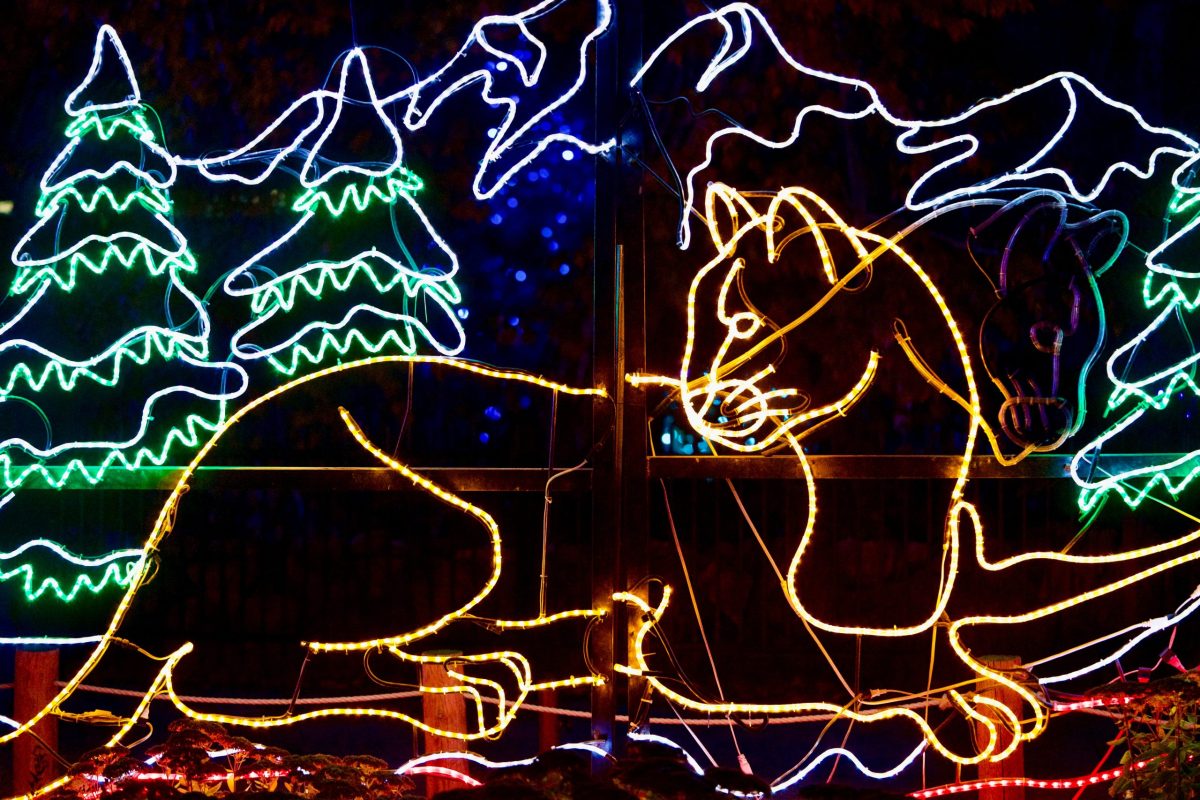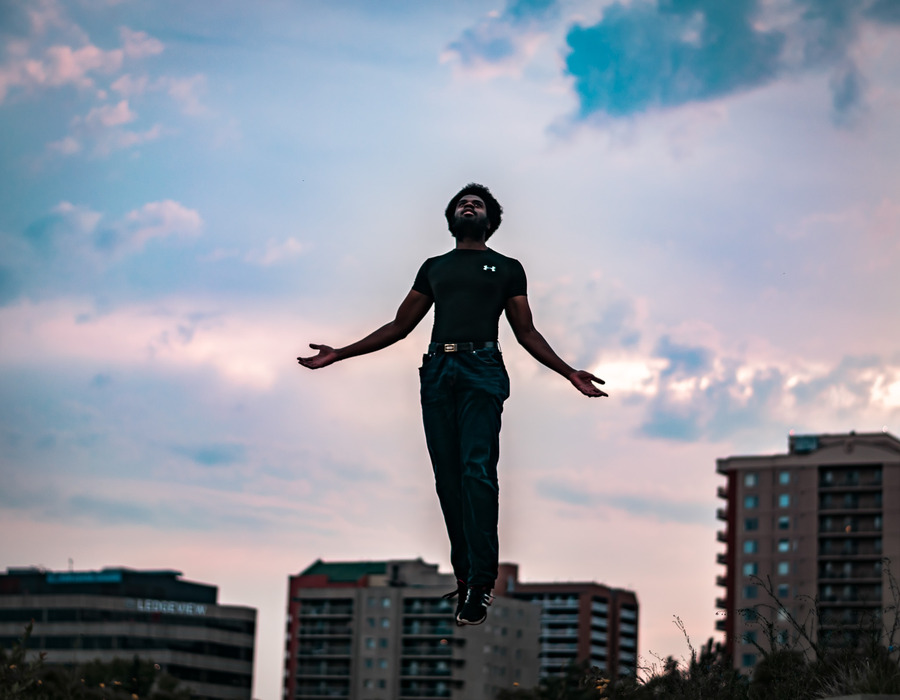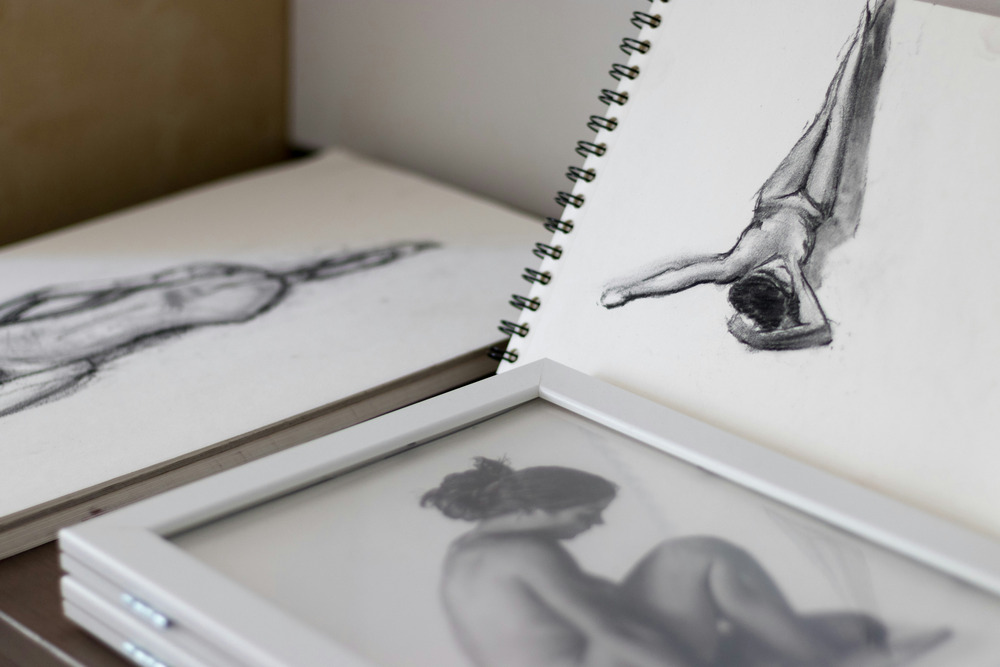Interviews
A Queer Mountain Lion Struggles With Humanity and Hunger Beneath the Hollywood Sign
Henry Hoke on inhabiting the confusion, longing, and ferocity of his animal narrator in the novel "Open Throat"

Open Throat wields its language both as a salve and scalpel. The novel follows its unforgettable narrator—a queer, lonely mountain lion living under the Hollywood sign—as they struggle to survive and discover their own identity by watching the humans around them. Observing passing hikers, young lovers, and residents of the nearby encampment from the shadows, the lion comes to understand that they live in a city they believe to be known as “ellay” and that their trauma resulting from their vicious father still resonates today. But while the words the narrator learns help them feel closer to the humans that fascinate them, they also deepen the gulf between who they are and who they want to be. As the lion ruminates, “I have so much language in my brain and nowhere to put it.”
In part elegiac and deeply existential, Open Throat is also full of humor and wonder. Henry Hoke, who himself is a humor editor at The Offing in addition to his work as a co-creator of the LA-based performance series Enter>text, weaves wit into every revelation and misunderstanding the lion has on their journey into the city. The result is a playful and gutting read, powered in part by the captivating voice of what may be one of modern fiction’s most memorable narrators.
I talked with Hoke about writing from the perspective of an animal, how language brings us together and pulls us apart, and the possible disparities between how people identify and how the world perceives them.
Michael Welch: The narrator of Open Throat—a lonely mountain lion living under the Hollywood sign—might be one of the most memorable literary voices I’ve read this year. Since there are notably few books narrated by animals, how did you begin writing this character and their perspective? Were there any inspirations you found yourself turning to?
Henry Hoke: This was the most organic, fluid voice I’ve ever written in. Nothing about inhabiting the animal consciousness felt alien: the confusion, the longing, the ferocity all made perfect sense to me. I think the unfettered expression (no punctuation, no reprieve from the monologue) freed me to locate a feral flow. I’d read maybe one other animal-narrated book for adults, and I avoided them entirely once this idea came to me. My guiding lights were two authors I admire for their fierce, unflinching voices: Susan Steinberg and Katherine Faw (I’d recently read their outstanding novels Machine and Ultraluminous). To access that direct approach in my own practice I had to get outside of a human headspace.
MW: This book grapples in part with the complexities of gender identity and the desire for connection. What was unlocked for you by exploring these deeply human experiences from a non-human perspective?
HH: These complexities are something I struggle with, and also find joy in, as a genderqueer person. By shifting into my mountain lion’s perspective, the absurdity and trauma of our binaries became both magnified and mutated in my mind, and the narrative bears that out, with the lion’s journey toward gender affirmation becoming central. I spent a large portion of my decade in Los Angeles home-bound by a panic disorder. My apartment was close to Griffith Park and the Franklin Hills, so these kind-of-wildernesses became destinations I’d push myself to reach in recovery. My lion’s isolation, its internal tremor (after an earthquake), its uncanny ear toward humans and their milieus, all reflect this compromised aspect of my daily life, one that kept me just outside of an evolving city scene, yearning to connect but wracked by my limitations.
MW: In addition to the attention you pay to these intimate, existential questions, the narrator finds their home consistently threatened by environmental catastrophes such as earthquakes and floods as well as human interference. In fact, it really feels like a uniquely LA novel in the way the factors of climate change and urbanization are coming together. Can you talk a bit about your experience living in LA and how you came to see this setting and its “kaleidoscopic chaos” as you describe in the acknowledgments as the right choice for this story?
HH: During my first months in southern California, I watched the hills above me blaze like the top of a volcano, and the next morning ash rained down and blanketed my car park. It was surreal, and smacked of uninhabitable. I knew that my lion—inspired by the real-life cougar P-22, who crossed the 405 freeway and roamed human-adjacent spaces for the same span of years I lived nearby—would experience these forces of nature with even more visceral peril. The acute encroachment on nature that urbanization brings, the inequality run rampant in a city with immense resources for only the very wealthy few, would all be magnified by my cat’s attempts at sense-making. I don’t belong here and neither do they, my cat says of the hikers discussing “Scare City,” (which is how she hears “scarcity”). The concept becoming a tangible place in the animal brain. Scare City was my way to process the sprawl, the uncertainty, and the fire danger of my ongoing encounter with Los Angeles, writhing with overwhelmed people and natural extremity.
MW: Something I really enjoyed as I read is how much humor you bring to the novel, such as how the narrator calls the city “ellay” because that’s what they hear passing hikers call it. I’d love to hear about your interest in humor writing.
By shifting into my mountain lion’s perspective, the absurdity and trauma of our binaries became both magnified and mutated in my mind.
HH: I feel like I’ve always been just outside of comedy, like I’m just outside of poetry. I love both genres and devour work in both, but stay devoted to my particular flavor of hybrid prose as an author. The harsh topics I gravitate toward seem to benefit from comic relief, so I never stop myself from acknowledging the absurdity of a moment or leaning into a jokey phrase. Humor writing is my favorite style to work with as an editor, so that’s why I love co-curating Wit Tea at The Offing magazine. It keeps me not only laughing in a rough world, but also opens my mind to the myriad unique perspectives our contributors bring.
MW: While the narrator in their search to understand themselves cobbles together some of the necessary language from others, it ultimately seems to create deeper internal turmoil. What ways do you see language both drawing us closer and pulling us apart?
HH: That’s a great question. For my lion, each new word that might offer salvation or sense-making (from “therapy” to “diznee” and beyond) slowly deteriorates in the face of abject need. And with no outlet for speech or writing, everything gets trapped within my big cat and roils: I have so much language in my brain, and nowhere to put it. Most days I find myself mourning language, because I love it, of course, but I think we’re in a death spiral. Our current era sees words emerge already distorted, in the deluge of info constantly entering and leaving our neural pathways. Signifiers of trauma are flattened by overuse. A progressive phrase, a reclamation, gets immediately co-opted by the fash and vomited back in our faces. I feel defeated, futile. I miss Instagram before captions. I try to scroll with blurred vision, to let language fly past me, wash over me, to have the meanings stop a little short, remain mysterious. I’m working to block out AI. My next book’s set in 1995.
MW: One of the novel’s most tragic aspects is that even as the narrator is trying to discover their own identity, they for the most part can only do so in the context of the humans and how these humans perceive them. Can you talk more about that tension between how a person identifies and views themselves and how the world too often sees them, especially when those two don’t converge?
HH: I don’t know anyone for whom those things line up exactly, so I think that’s a tension to which everyone can relate, and that we as a society could connect over and nurture, with affirming care, universally available. But the opposite is happening. People who are not threats to others are being perceived as threats by the state. The trans and queer community is terrorized by repulsive legislative and rhetorical assaults, oppressive and invalidating. But no person, no identity, is ever fixed. No identity is in need of fixing, only transforming. I’m in awe of the robustness of networks and communities of affirmation in the wake of governmental violence. As my lion says: if you feel alone in this world, find someone to worship you. I want us all to be goddesses.









